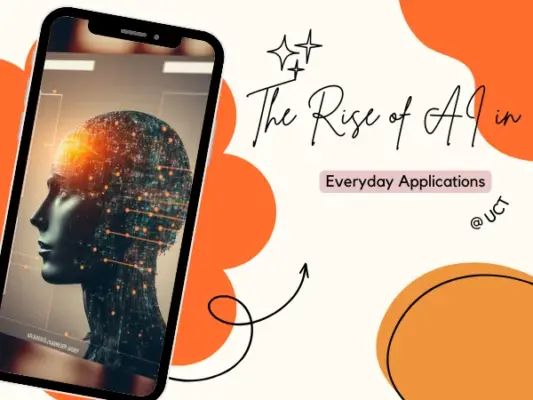
Introduction
Artificial Intelligence (AI) is no longer a futuristic concept confined to sci-fi novels. It has seamlessly integrated into our daily lives, transforming the way we work, communicate, and make decisions. From smart assistants to recommendation engines, AI is enhancing various aspects of our everyday experiences. This blog explores how AI is rising in everyday applications, showcasing its impact on different sectors and providing insights into the technologies driving these changes.
1. AI-Powered Personal Assistants
AI personal assistants like Siri, Google Assistant, and Alexa have become indispensable tools in managing our daily routines. These voice-activated assistants help us with tasks ranging from setting reminders and sending messages to providing weather updates and answering questions. Leveraging natural language processing (NLP) and machine learning, these assistants continually improve their accuracy and usefulness, making our interactions more intuitive and efficient.
2. Enhanced Customer Service with Chatbots
Chatbots powered by AI are revolutionizing customer service by providing instant, 24/7 support. These intelligent bots can handle a wide range of customer inquiries, from answering frequently asked questions to assisting with complex issues. By analyzing customer interactions and learning from previous conversations, chatbots offer personalized and contextually relevant responses, improving overall customer satisfaction and reducing response times.
3. Personalized Content Recommendations
AI algorithms drive the personalized content recommendations we see on platforms like Netflix, Amazon, and YouTube. By analyzing our viewing history, browsing behavior, and preferences, AI systems suggest content tailored to our interests. This personalization enhances user experience, increases engagement, and helps us discover new content that aligns with our tastes.
4. Smart Home Automation
AI has made significant strides in smart home automation, with devices like smart thermostats, lighting systems, and security cameras enhancing convenience and energy efficiency. AI-powered systems learn from user behavior and preferences to optimize home settings. For example, smart thermostats adjust the temperature based on occupancy patterns, while AI-driven security cameras can differentiate between familiar faces and potential intruders.
5. AI in Healthcare
In the healthcare sector, AI is transforming patient care and diagnostics. AI algorithms analyze medical images to detect anomalies, assist in early disease detection, and provide personalized treatment recommendations. Additionally, AI-powered health apps monitor vital signs, track medication adherence, and offer health insights, empowering individuals to manage their health more effectively.
6. Financial Services and Fraud Detection
AI is increasingly used in financial services for fraud detection and risk management. Machine learning algorithms analyze transaction patterns to identify suspicious activities and potential fraud. By detecting unusual behavior in real-time, AI systems help prevent fraudulent transactions and protect sensitive financial information.
7. AI-Driven Navigation and Traffic Management
AI enhances navigation and traffic management through real-time data analysis and predictive modeling. Applications like Google Maps and Waze use AI to provide optimized route suggestions, avoid traffic congestion, and offer estimated arrival times. Additionally, AI systems help cities manage traffic flow and reduce congestion by analyzing traffic patterns and adjusting signals accordingly.
8. E-Commerce and Shopping Experience
AI is reshaping the e-commerce landscape by offering personalized shopping experiences and streamlining processes. AI-powered tools assist with product recommendations, virtual try-ons, and chat-based shopping assistance. By analyzing customer data and preferences, AI enhances the online shopping experience and drives sales through targeted marketing.
9. AI in Education
In education, AI tools are creating personalized learning experiences and supporting educators. AI-powered platforms offer tailored educational content, adaptive learning paths, and real-time feedback to students. Additionally, AI assists teachers in grading, curriculum development, and identifying students who may need additional support.
10. Ethical Considerations and Future Prospects
As AI continues to rise in everyday applications, ethical considerations become increasingly important. Issues related to privacy, data security, and bias need to be addressed to ensure responsible AI development and deployment. Looking ahead, AI is poised to play an even greater role in our lives, with advancements in areas like autonomous vehicles, robotics, and smart cities.
Conclusion
The rise of AI in everyday applications is reshaping how we interact with technology and enhancing various aspects of our lives. From personal assistants and customer service chatbots to healthcare innovations and smart home automation, AI is making our experiences more convenient, personalized, and efficient. As AI technology continues to evolve, it will undoubtedly bring even more transformative changes to our daily routines.